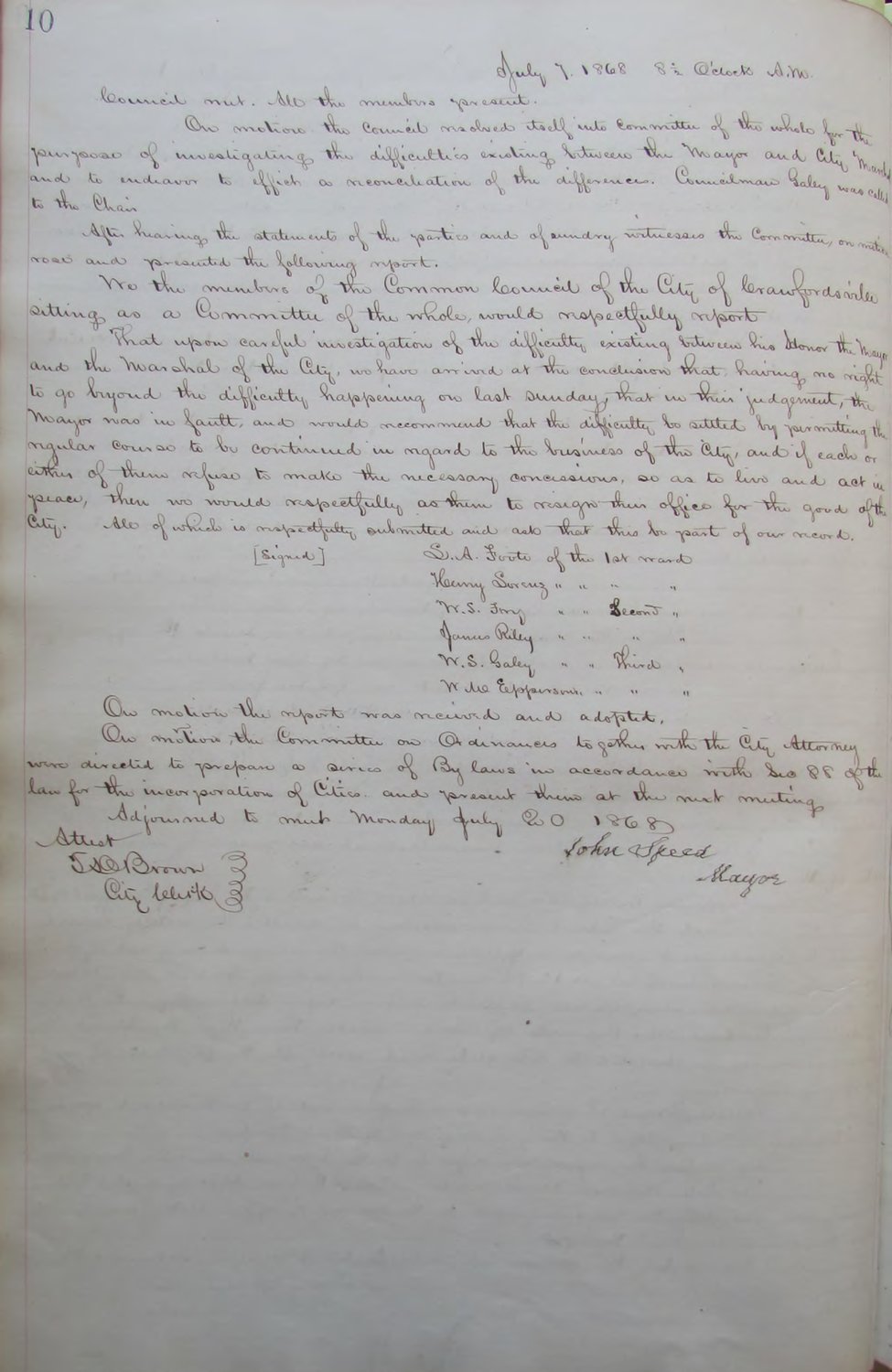
The summer after Andrew Johnson became the first U.S. president to be impeached, a showdown with the city marshal threatened the political career of Crawfordsville’s most famous abolitionist.
The drama unfolded over the Independence Day weekend in 1868, when marshal William Martin arrested a man for being drunk in public. The man, named by a local newspaper as “Pate,” was taken to a local hotel.
His friends appealed to Mayor John Speed to set him free. Speed, a respected stonemason whose cabin had been a stop on the Underground Railroad, confronted the marshal.
During the argument, Speed used language toward Martin that was “more emphatic than elegant,” according to an account by the Crawfordsville Weekly Journal.
The city council called a special meeting to investigate the dispute and mediate a resolution. The Journal scoffed that the council was “wishing to put on the airs of a big government,” mocking the session as the “second great impeachment trial.”
On the morning of July 7, with all members present, the meeting was gaveled into session. Speed and Martin each gave statements, followed by a long line of witnesses, according to clerk records.
At the end of the daylong “trial,” the marshal was exonerated and Speed got a reprimand for “language unbecoming a city official,” the Journal reported.
“[The council] would recommend that the difficulty be settled by permitting the regular course to be continued in regard to the business of the City,” the clerk wrote, “and if each or either of them refuse to make the necessary concessions so as to live and act in peace, then we would respectfully ask them to resign their offices for the good of the city.”
Martin would not finish the rest of his term. He submitted his resignation to the council in September, with no mention of the episode recorded in the minutes. Speed left office in 1870, three years before his death of lung congestion.
“His great leading characteristic was a stern honesty that no temptation could successfully assail,” the Crawfordsville Weekly Journal wrote.